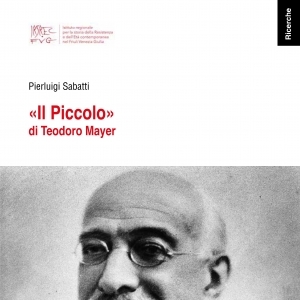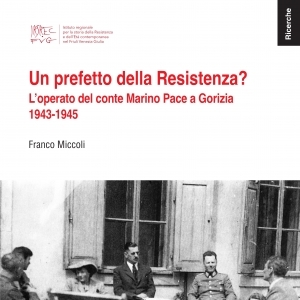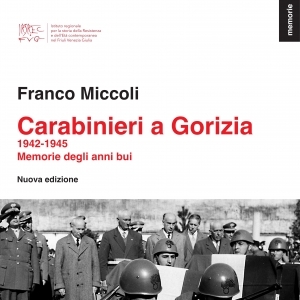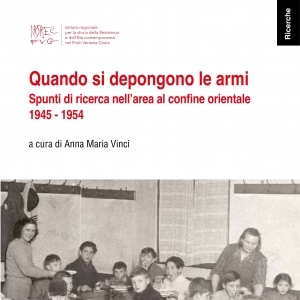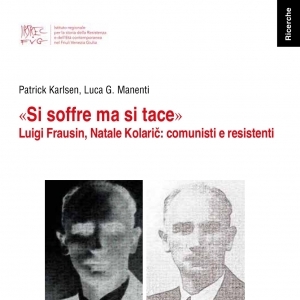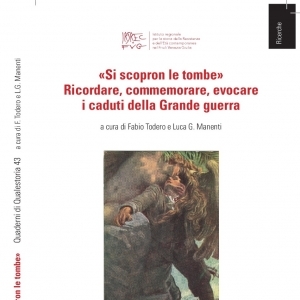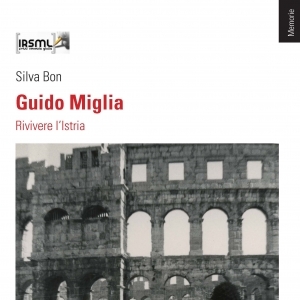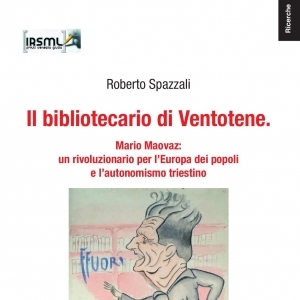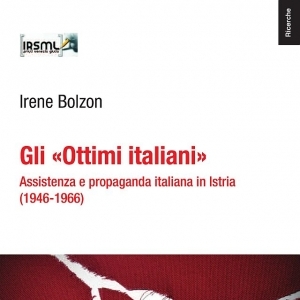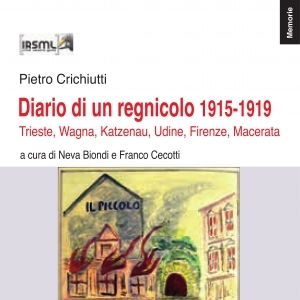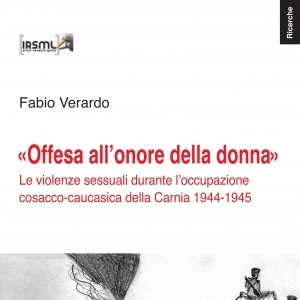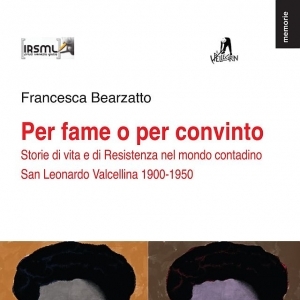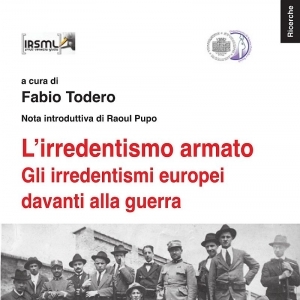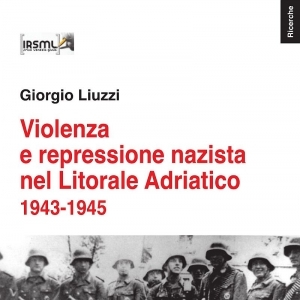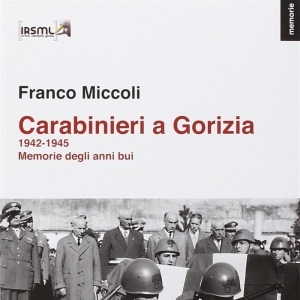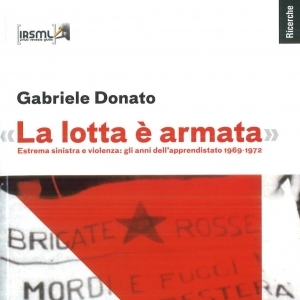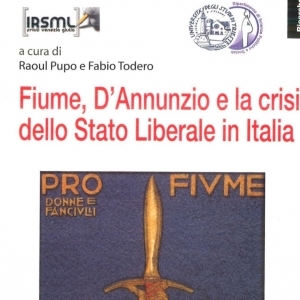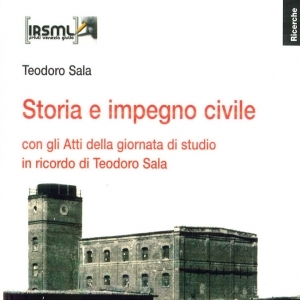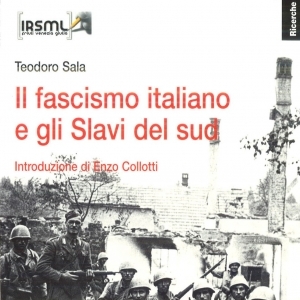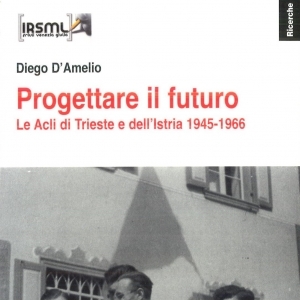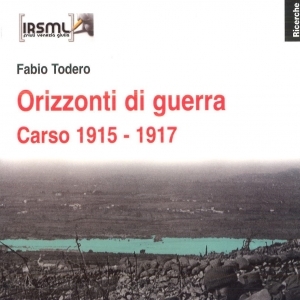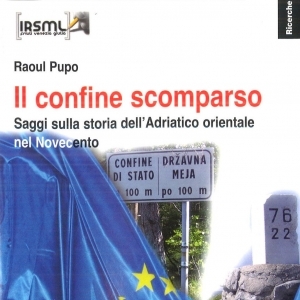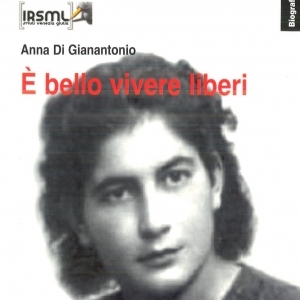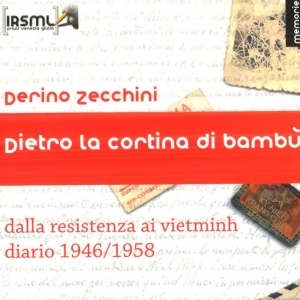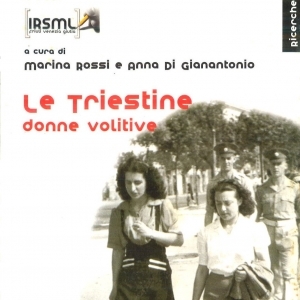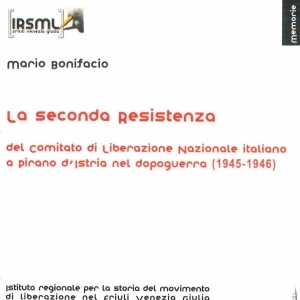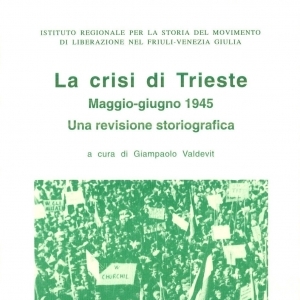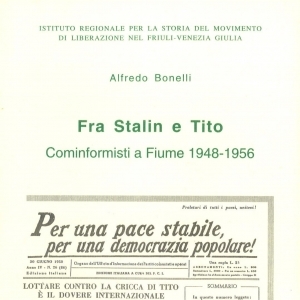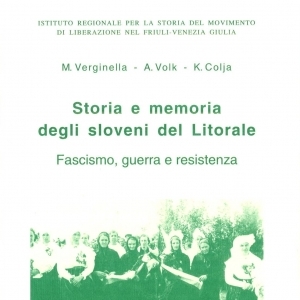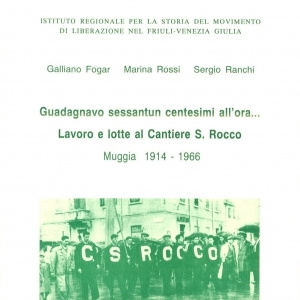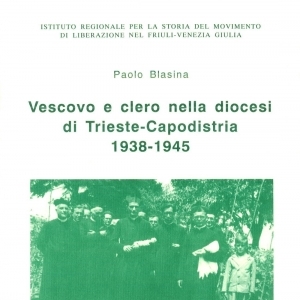Qualestoria, n. 1, giugno 2013
Vari

|
Studi e Ricerche |
Studies and researches |
|
|
|
|
|
|
|
|
|
|
|
Andrea Dessardo |
Insegnare ad essere italiani. I corsi per i maestri delle nuove province d’Italia, 1917-1921 Teaching how to be Italian. Courses for primary school teachers of the new Italian provinces 1917-21 |
5 |
|
|
|
Roberto Spazzali |
«Ragione e volontà di rinnovamento». Il Partito d’Azione e gli anni difficili di Trieste «Reason and desire for renewal». Partito d’Azione (Action Party) and the difficult times in Trieste |
23 |
|
|
|
Vittorio Coco |
Il poliziotto di un regime totalitario. Vita e carriera di Giuseppe Gueli The police officer of a totalitarian regime. Life and career of Giuseppe Gueli |
45 |
|
|
|
Gabriele Donato |
La violenza politica nel dibattito dei primi anni Settanta: il caso di Potere operaio Political violence in the early Seventies debate: the case of Potere operaio |
63 |
|
|
|
|
|
|
|
|
|
Documenti e problemi |
Documents and problems |
|
|
|
|
|
|
|
|
|
|
Fabio Ferrarini |
La protezione antiaerea italo-tedesca durante la Seconda guerra mondiale: Milano, Trieste e Berlino The Italo-German Anti-Aircraft defense during the Second World War: Milan, Trieste and Berlin |
79 |
|
|
|
|
|
|
|
|
|
Note critiche |
|
|
|
|
|
|
|
|
|
|
|
Alessio Marzi |
Gianfranco Cresciani, Trieste goes to Australia, Lindfield, |
99 |
|
|
|
|
|
|
|
|
|
|
|
|
|
|
|
Appendice |
|
|
|
|
|
Michele Sarfatti |
Il discorso razzista e antisemita di Mussolini a Trieste il 18 settembre 1938 Mussolini’s racist anti-semitic speech given in Trieste on 18 September 1938 |
103 |
|
|
|
|
|
|
|
|
|
Gli autori di questo numero |
|
113 |
|
|
|
|
|
|
|
GLI AUTORI DI QUESTO NUMERO
Andrea Dessardo, laureato in Scienze politiche ed internazionali a Trieste, e dottorando di ricerca in Teoria, storia, metodi dell’educazione presso la LUMSA di Roma. Giornalista pubblicista, ha collaborato al settimanale diocesano «Vita Nuova». Collabora con il trimestrale dell’Azione Cattolica «Dialoghi». Collaboratore di «Qualestoria», ha pubblicato alcuni volumi di romanzi e racconti e, per i tipi dell’Istituto, il volume «Vita Nuova» 1945- 1965. Trieste nelle pagine del settimanale diocesano (Trieste 2010).
Gabriele Donato è dottore di ricerca in Storia contemporanea e insegnante di Storia e Filosofia. Con l’Istituto friulano per la Storia del Movimento di Liberazione ha pubblicato nel 2008 la monografia Sovversivi, dedicata all’antifascismo cospirativo in Friuli fra le due guerre.
Negli anni successivi si è occupato del movimento sindacale nel Novecento e della violenza politica nell’Italia degli anni Settanta, tema sul quale dal 2010 ha svolto attività di ricerca presso l’Università di Trieste e sul quale, per i tipi del nostro Istituto ha pubblicato «La lotta è armata». Estrema sinistra e violenza: gli anni dell’apprendistato 1969-1972(Trieste 2012).
Fabio Ferrarini nasce a Monfalcone nel 1983. È laureato in Scienze giuridiche e Scienze storiche presso l’Università degli studi di Milano. Dal 2007 al 2009 ha lavorato alla Fondazione biblioteca europea di informazione e cultura (BEIC) presso la segreteria del prof. Antonio Padoa Schioppa. Dal 2012 è Tesoriere, Responsabile culturale e docente di storia e cultura italiana presso la Società Dante Alighieri di Berlino.
Michele Sarfatti si occupa di storia contemporanea con particolare riguardo alle vicende degli ebrei nell’Italia fascista. Direttore dal 2002 della Fondazione centro di documentazione ebraica (CDEC ONLUS), è autore di numerosi studi storici sulla Shoah in Italia, tra i quali ricordiamo tra gli altri The Jews in Mussolini’s Italy. From Equality to Persecution(Madison 2006) e Gli ebrei nell’Italia fascista. Vicende, identità, persecuzione, (Torino 2007). Componente del comitato scientifico della rivista «La rassegna mensile di Israel», dirige la rivista digitale «Quest. Issues in contemporary jewish history. Questioni di storia ebraica contemporanea». Componente della Commissione governativa di indagine sui beni degli ebrei in Italia nel periodo delle persecuzioni 1938-1945 (Commissione Anselmi) e della Commissione governativa per il recupero del patrimonio bibliografico della comunità ebraica di Roma razziato nel 1943. È inoltre membro del comitato scientifico della Fondazione museo nazionale dell’ebraismo italiano e della Shoah di Ferrara.
Roberto Spazzali, insegnante e pubblicista, studioso della storia contemporanea della Venezia Giulia e delle istituzioni politiche, attualmente è comandato presso l’Istituto regionale per la storia del movimento di liberazione nel Friuli Venezia Giulia. È stato supervisore di tirocinio presso la SSIS di Trieste; ha insegnato Didattica della storia e metodologie della didattica della storia presso l’Università degli studi di Trieste. Tra le sue numerose pubblicazioni, le più recenti sono Pola operaia (1856-1947). I Dorigo a Pola. Una storia familiare tra socialismo mazziniano e austro marxismo(Circolo Istria, Trieste 2010) e Radio Venezia Giulia. Informazione, propaganda e intelligence nella «guerra fredda» adriatica (1945-1954) (LEG, 2013).
Abstracts
Abstract – Political violence in the early Seventies debate: the case of Potere Operaio
Gabriele Donato
This essay investigates the considerations with which an important group of the Italian extreme left wing justified the choice for political violence in the Seventies: Potere Operaio (Workers’ Power: an organization founded in 1969, which dissolved in 1973). This issue seems remarkable first of all because of the influence exerted by the most important leaders of the group (in particular by Toni Negri and Franco Piperno) on the political debates of those years; moreover, the discussion which opened up within PO would have been carried on beyond the organization’s dissolution: the stands taken in the early Seventies would have continued to affect the debates on the prospects for armed struggle which were to develop in Italy in the following years. Therefore they deserve special attention, and the essay suggests some possible interpretative keys.
Abstract - «Reason and desire for renewal ». Partito d’Azione (Action Party) and the difficult times in Trieste
Roberto Spazzali
The origins of the Partito d’Azione (Action Party), and before that of Giustizia e Libertà (Justice and Freedom), are to be found in a political movement which was characterized by a democratic, mazzinian tradition: this movement had been founded by a small but significant number of young workers and students gathered around Democrazia sociale italiana (Italian Social Democracy), an association active in Trieste, Gorizia and in Istria from January 1907. In the aftermath of the Great War the movement went through a hard break up when a lot of its members joined the antifascist struggle; it was a choice that led them at first to adhere to Giustizia e Libertà, and later to found the Partito d’Azione (Action Party), while still remaining firmly committed to the patriotic ideal as for the Trieste and the Julian March questions.
Abstract - Teaching how to be Italian. Courses for primary school teachers of the new Italian provinces 1917-21.
Andrea Dessardo
During the summer of 1919 the Secretary for Civil Affairs of the Army Headquarters organized six courses for the teachers from Trentino and Julian March, which had a declared cultural and propagandistic purpose. The courses, which lasted one month, were directed by some of the most important educational philosophers of that time: Guido Della Valle, Giovanni Gentile, Giuseppe Lombardo-Radice, Giuseppe Tarozzi, Erminio Troilo and Giovanni Vidari. Studying the programs, themes, and how these courses were organized offers a useful perspective from which to understand what the Italian political expectations after the Great War were, as well as the emergence of the new actualist and idealist positions in philosophy. In this context, the personality of Luigi Credaro, at that time in Trento as general civil commissary of theVenezia Tridentina, stands out.
Abstract - The police officer of a totalitarian regime. Life and career of Giuseppe Gueli
Vittorio Coco
The aim of this essay is to retrace Giuseppe Gueli’s life and career: a police officer (member of the P.S., the Italian public safety), who had formed during the last years of the liberal period, and who went through Italian Fascism and its development into a totalitarian regime. Beginning his career alongside Cesare Mori, Gueli filled in fact relevant positions within the Italian police as it had been organized by Arturo Bocchini: at first in Alto Adige (South Tyrol) to set up the awkward system of the border police, in the Thirties Gueli moved to Sicily where he led a second repression campaign against the mafia and finally, during the Forties, he became chief of the Special Inspectorate of Public Safety for the Venezia Giulia, established to fight against the anti-fascist forces, especially against the Slovene and Croatian partisans. Held responsible for all kinds of violence, the Inspectorate became part of the Triestine SS after September 1943, and Gueli underwent a trial in which he was condemned for collaborationism.






